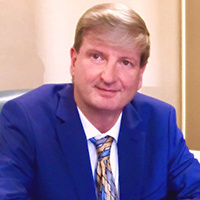Unity Felony Lawyer, Wisconsin
Not enough matches for Unity Felony lawyer.
Below are all Unity Criminal lawyers.
Peter C. Lloyd
✓ VERIFIEDDivorce & Family Law, Criminal, Traffic, Child Custody, Child Support
Attorney Peter Lloyd is an experienced lawyer practicing law in the Central Wisconsin area. He limits his practice to specific areas (family, criminal... (more)
Jonathan D. Sherman
Criminal, Personal Injury, Divorce & Family Law, DUI-DWI
Status: In Good Standing
FREE CONSULTATION
CONTACTWilliam D. Mansell
Workers' Compensation, Personal Injury, Family Law, Criminal, Mass Torts
Status: In Good Standing Licensed: 44 Years
Keith F. Ellison
Criminal, DUI-DWI, Divorce & Family Law, Insurance Malpractice, Accident & Injury
Status: In Good Standing Licensed: 47 Years
Kenneth J. Andraski
Traffic, Mass Torts, Divorce & Family Law, Criminal, Accident & Injury
Status: In Good Standing Licensed: 50 Years
William Drengler
Bankruptcy, Criminal, Divorce & Family Law
Status: In Good Standing Licensed: 48 Years
Jonathan A. Barnett
Landlord-Tenant, Traffic, Workers' Compensation, DUI-DWI
Status: In Good Standing
Wright C. Laufenberg
Traffic, Divorce & Family Law, Criminal, Accident & Injury
Status: In Good Standing Licensed: 32 Years


